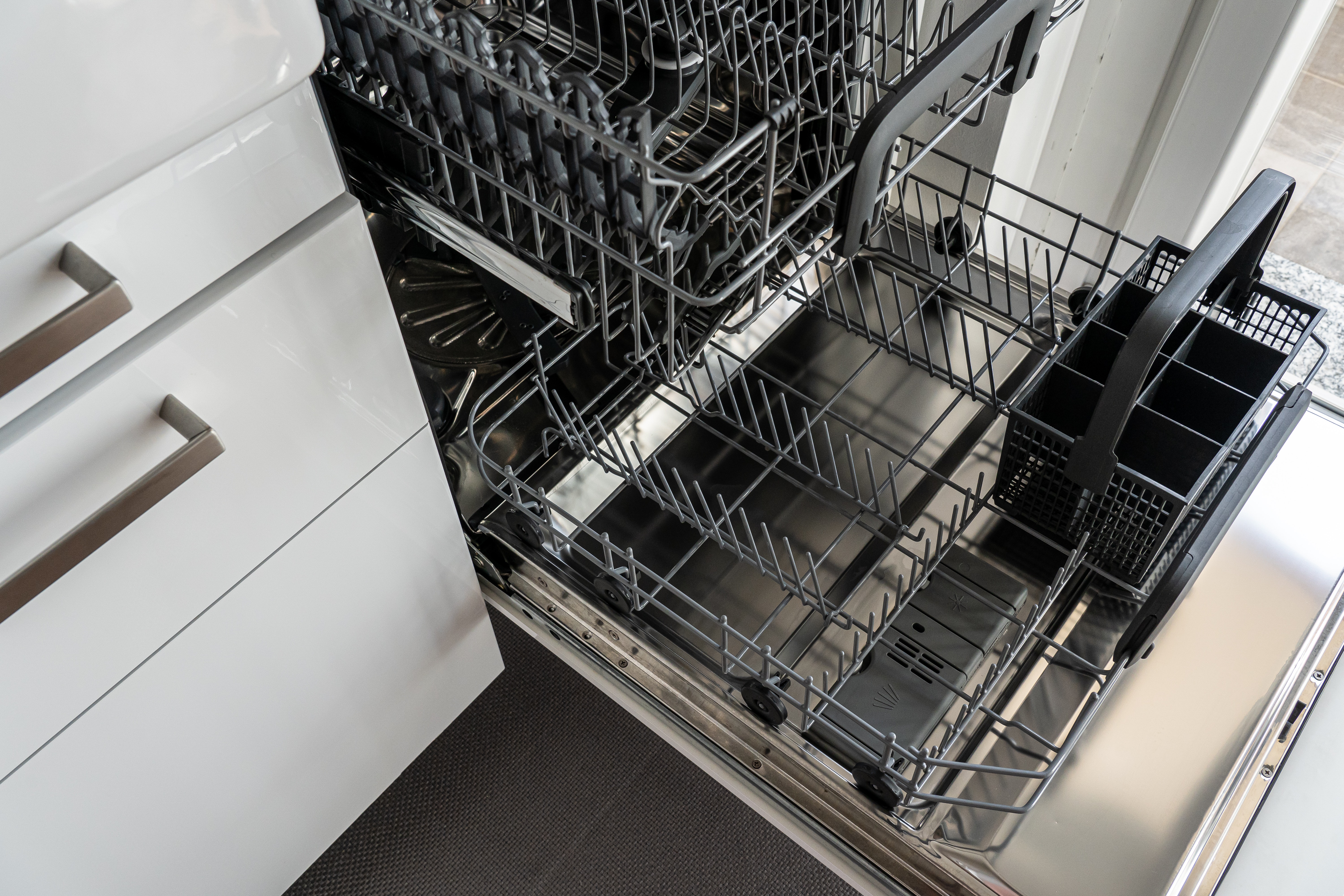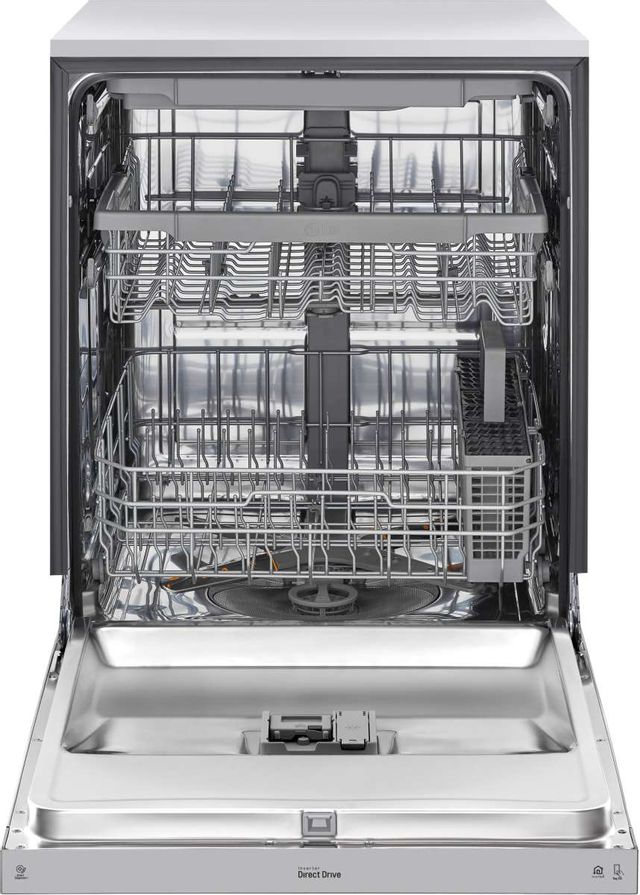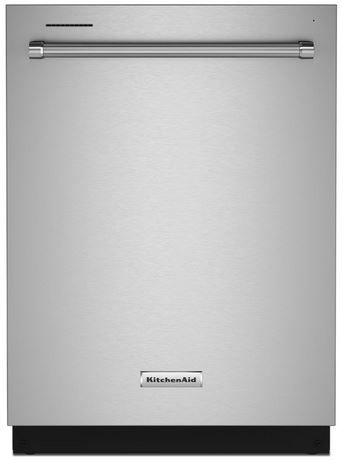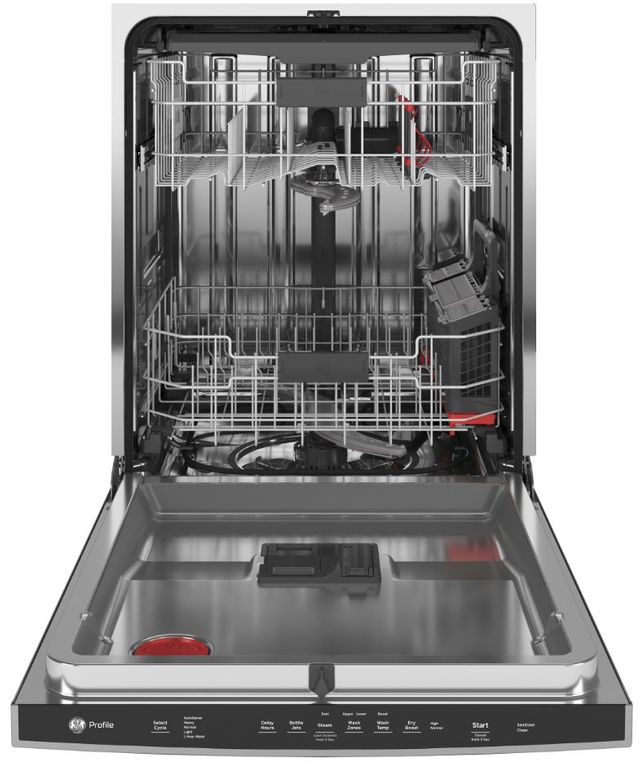
At a Glance:
Cause 1: Dirty or Blocked Filter
Cause 4: The Detergent Problem
A dishwasher is certainly one of the best home appliance purchase decisions you can make for yourself. This is because dishwashers offer a great deal of comfort when it comes to kitchen operations. For one, with a dishwasher, you won’t have to worry about wasting time and energy on manually washing plates since the dishwasher will perfectly take care of the washing process for you.
Do you have a dishwasher in your home? If you don’t then you’ll certainly want to consider getting one for yourself!
>> Check out our guide on the best dishwashers for your home!
Explore Dishwasher Options at Arnold's
DishwashersWhile having a dishwasher is certainly awesome and it does wonders for your convenience, you should know that it isn’t all roses. Using a dishwasher also means you’ll occasionally have to deal with some operational challenges. A typical example of this is the “dishwasher not draining” problem.
Have you found that your dishwasher won’t drain every time you use it? Relax, there’s no need to panic, just like most other challenges you may face when using your dishwasher, this one is also pretty straightforward to fix. Read on to find out why you may be experiencing the dishwasher not draining problem and discover effective ways of fixing this water not draining from dishwasher problem.
Why Is My Dishwasher Not Draining?
Although fixing a dishwasher not draining problem is relatively easy, it does require that you know why this problem is occurring in the first place. This is because it’s only then you’ll be able to effectively fix this dishwasher not draining problem. That being said, here are some of the reasons why you may be having standing water in your dishwasher:
Cause 1: Dirty or Blocked Filter
If you didn’t know this already then you should know that your dishwasher has a filter around the drainage area that helps to prevent food particles from getting into your drainage pipe and clogging it up. Over time, however, this filter may get clogged with food particles. When this happens it will impede water flow out of your dishwasher leaving you to deal with a standing water in dishwasher problem.
How To Fix:
If this is the reason you’re experiencing the dishwasher not draining problem, you should know that it’s relatively easy to fix. In fact, it’s so easy to fix that you’ll be able to do it yourself! To fix it, you’ll first have to locate the drain filter. Usually, you’ll find it under the revolving piece right below the lower tray part of your dishwasher. However, if you’re still not able to find it, you could refer to your dishwasher manual. It’ll contain all the information you need on how to locate it.
When you find it, the next thing to do is remove it from its holding spot and check to see if it’s clogged with food particles. If it is, you’ll want to wash it thoroughly and then return it to its position. However, if there aren’t still improvements after washing it, you might have to change the entire filter. Overall this particular fix is very straightforward and it shouldn’t take you more than a few minutes. The most time-consuming part is finding the filter.
.png)
Cause 2: Clogged Drain Pipe
Another thing that could be responsible for causing your dishwasher not draining problem is if your dishwasher’s drain pipe is clogged. Normally, a dishwasher drain hose is responsible for emptying food materials from the dishwasher into the garbage disposal. However, just like you have with the filter, these food particles can get stuck to the surface of the drain hose, thereby causing a partial or total blockage. When this happens, your dishwasher won’t be able to drain properly or not at all.
How To Fix:
If food particles have clogged your dishwasher drain hose, there’s an easy way to fix the problem. All you’ll need to do is run your garbage disposal for an additional 15-30 seconds after every wash cycle. You should also leave your water running simultaneously. This should help prevent food particles from sticking to your dishwasher drain hose so it won’t get clogged.
If this doesn’t work, then you will need to take extra steps to clean out your dishwasher’s drain pipe. Firstly you’ll want to run a hot water cycle and then empty it via the drain pipe. This should effectively dislodge any present food particles blocking your drain pipe. You could also try applying an enzyme cleaner to your drain pipe. Not that when using an enzyme drain cleaner, you don’t need to apply a lot. A small amount applied directly where you want to clean will be sufficient. If the dishwasher drain hose is too clogged, however, you may need to swap it out for a new one.
Want a dishwasher that offers you a perfect blend of excellent cleaning effects and intelligent control? Check out this LG 24" PrintProof™ Stainless Steel Built-In Dishwasher!

Cause 3: Clogged Air Gap
An air gap is a cylindrical part of your dishwasher that connects it to your sink drain. The air gap is actually an important part of your dishwasher because it acts to prevent dirty water from flowing into or out of your dishwasher during wash cycles. You should know that if this air gap gets blocked, it’ll affect the ability of your dishwasher to drain properly. So if you’re currently experiencing the dishwasher not draining problem, you’ll want to take a look at the state of your dishwasher’s air gap.
How To Fix:
To check the state of your air gap, you’ll need some tweezers and a small brush. Use the tweezers to remove any obstructions you can find in the air gap’s opening. Then, follow up the cleaning with the small brush to be sure every last speck of dirt or debris has been eliminated. Once you’ve done all this, run a wash cycle and check to see if the dishwasher not draining problem has been resolved.
Want a dishwasher that’ll perfectly fit into your kitchen cabinet and give you a premium built-in look? If you do, this KitchenAid® 24" PrintShield™ Stainless Steel Built-In Dishwasher is just the thing for you!

Cause 4: The Detergent Problem
Did you know that most dishwashers are designed to be used with powder detergents instead of liquid ones? If you didn't, well now you do! You may not think this factor is important but the fact is it actually is. You see liquid detergents tend to create lots of suds and this could in turn lead to blockage of your dishwasher drainage. Thus you’ll end up with a dishwasher not draining completely issue.
How To Fix:
Fixing this problem if you’ve been using liquid detergents is very easy. All you’ll have to do is swap out your liquid detergent for powder ones and you should be fine. If you’d rather not do this, then you’ll want to consider reducing the amount of liquid detergent you’ve been using to prevent a drainage block from happening.
Cause 5: Old Dishwasher
If you’ve been using your dishwasher for a while it only stands to reason that at some point, its performance will start to decline. This is because machine parts will get damaged or wear out, plus after a while, you really won’t be able to quite get rid of dirt accumulation in your dishwasher. When this happens, you may need to replace your dishwasher. Before you do this, however, you’ll want to call a technician to help service it or take a look at your dishwasher’s state to see if it’s still in good operable condition. If it isn’t then you will have to replace it.
If you’re looking to replace your dishwasher but you don’t know what dishwasher option to choose from, here’s a recommendation for you; the GE Profile™ 24" Stainless Steel Built-In Dishwasher. This dishwasher has everything you could ever need from large capacity to intelligent design so it’s certainly the perfect choice for you.

FAQ
Q: What important things should I know about using a dishwasher?
A: There are lots of things to take note of with a dishwasher, however, there are three things that are arguably the most important. They include:
- Don’t overload your dishwasher
- Always allow the dishwasher to cool after a drying cycle before opening it.
- Read your user manual!
Q: Can I fix issues with my dishwasher myself?
A: The answer to this isn’t straightforward. This is because there are dishwasher problems you’ll be able to fix by yourself but some others may be more complex than what you can handle. Overall, however, it is recommended that you avoid trying to fix dishwasher issues yourself unless you’re very sure you know what you’re doing.
Q: How often should I service my dishwasher?
A: Ideally, you’ll want to make sure you clean your dishwasher after every use. However, it is recommended that at least every two months, you take time to thoroughly clean and service your dishwasher. This will help prevent the buildup of things that can clog your dishwasher system. Plus, it makes it easier to identify and fix potential issues with your dishwasher.
Why Trust Arnold’s Appliance?
Arnold’s Appliance started in the summer of 1956 when it opened its doors as Lakeshore Appliance in Redmond, Washington. John Arnold and his family have since grown the store from just a few brands to the large appliance store it is today and moved to Bellevue in 1999 in search of a larger building. Arnold’s Appliance now offers high-end innovative products from over 45 manufacturers.
In addition to extensive product knowledge, Arnold’s has been providing fine appliances to Northwest builders, remodelers, designers, architects, and developers for over 47 years. Arnold's currently supplies products and installations to many of the finest custom and spec home builders in the Pacific Northwest. Along with single-family housing, Arnold's has also supplied products for some of the largest multi-unit projects in the area. Arnold’s Now the third generation of the Arnold’s Family is dedicated to bring the best quality products, delivery services, and installation to customers for years to come.
Shop Dishwashers At Arnold’s Appliance
Stop by Arnold’s Appliance Bellevue, WA location to see what a difference buying local with an experienced staff can make. Or shop dishwashers online! Our friendly experts are always happy to help you find and select the best dishwasher for you— whether you call us at 425-454-7929, use our online chat feature, or visit us in person.
Learn More: How Much Water Does a Dishwasher Use?